Cannabis Flower: A Natural Approach to Managing Chronic Pain & PTSD
Cannabis offers promising natural relief for PTSD symptoms through high-CBD strains that interact wi…….
Post-traumatic stress disorder (PTSD) is a profound mental health condition affecting millions worldwide, leaving individuals grappling with haunting memories, intense emotions, and disturbing nightmares. In recent years, the use of cannabis strains specifically tailored to alleviate PTSD symptoms has gained significant attention. This article delves into the world of ‘cannabis strains for PTSD,’ exploring their potential benefits, mechanisms of action, global impact, economic implications, technological innovations, regulatory landscape, challenges, and future prospects. By providing a detailed analysis, we aim to offer valuable insights for patients, healthcare professionals, researchers, and stakeholders in this evolving field.
Cannabis strains tailored for PTSD are specific varieties of the cannabis plant (Cannabis sativa or Cannabis indica) selectively bred for their therapeutic properties in managing the symptoms associated with this disorder. These strains contain various chemical compounds, predominantly cannabinoids, such as tetrahydrocannabinol (THC) and cannabidiol (CBD), along with terpenes and flavonoids. The unique combination and ratios of these components are believed to interact with the endocannabinoid system (ECS) in the human body, which plays a crucial role in regulating mood, memory, and stress response.
While cannabis has been used medicinally for centuries, its application in treating PTSD is relatively newer. Traditional uses include pain management, anxiety reduction, and sleep aid. However, as research into the endocannabinoid system advanced, scientists began to explore cannabis’s potential in addressing mental health disorders like PTSD. The discovery of THC’s psychotropic effects and CBD’s anxiolytic (anxiety-reducing) properties has fueled interest in developing specific strains for treating PTSD symptoms.
The significance of this approach lies in offering a potential alternative or adjunctive treatment option for individuals struggling with PTSD, especially those seeking non-pharmacological interventions or complementary therapies alongside conventional treatments. As the global recognition of cannabis’s medicinal benefits grows, so does the potential for these specialized strains to make a substantial impact on PTSD management.
The global landscape of cannabis strains for PTSD is dynamic and rapidly evolving. Key trends shaping this field include:
Increasing Legalization and Acceptance: Many countries and states worldwide have legalized or decriminalized cannabis for medical use, including its application in treating PTSD. This shift has facilitated research, patient access, and the development of specialized strains.
Cross-Cultural Adoption: Cannabis medicine is gaining traction across diverse cultures, with traditional knowledge systems embracing its therapeutic potential. For example, Indigenous communities in North America have a long history of using cannabis for healing, including mental health support.
Research and Clinical Trials: A growing body of scientific research is exploring the efficacy of cannabis for PTSD, leading to numerous clinical trials. These studies are driving the development of evidence-based practices and specific strain profiles tailored to PTSD symptoms.
Personalized Medicine Approach: There is a rising trend towards personalized medicine, where cannabis strains are prescribed based on individual patient needs and responses. This involves genetic testing and phenotyping to match the right strain with the best outcomes for each patient.
Hemp and CBD Dominance: The popularity of hemp (a variety of Cannabis sativa with low THC content) and its derivative CBD has taken the market by storm. While CBD products offer a range of potential health benefits, they are not always suitable for PTSD treatment due to their lack of psychoactivity. However, they serve as a foundation for developing more complex strains tailored for specific symptoms.
The economic implications of cannabis strains for PTSD are significant and multifaceted.
Market Dynamics: The global medical cannabis market is projected to grow exponentially in the coming years, driven by increasing legalization, rising health awareness, and expanding patient access. This growth presents a substantial opportunity for businesses involved in cultivating, processing, and distributing specialized PTSD strains.
Investment Patterns: Investors are increasingly directing capital towards companies specializing in cannabis medicine, including those focused on PTSD treatments. Startups and established pharmaceutical firms are investing heavily in research, cultivation, and product development to capitalize on this burgeoning market.
Economic Impact on Communities: The legal cannabis industry has the potential to revitalize rural economies, create jobs, and generate tax revenue for local governments. In regions where cannabis farming is becoming a viable economic activity, specialized PTSD strains can contribute to these positive impacts by fostering specialized cultivation practices and knowledge.
Cost-Effectiveness: Research suggests that cannabis-based treatments for PTSD may offer cost savings compared to traditional pharmacotherapies. As the market matures, efficient production methods, and improved strain profiles could make these treatments more accessible and affordable, benefiting patients and healthcare systems alike.
Technological breakthroughs have played a pivotal role in shaping the development of cannabis strains for PTSD.
Genetic Engineering: Modern genetic techniques allow breeders to precisely select and manipulate desired traits in cannabis plants. This enables the creation of novel strains with specific cannabinoid profiles, ensuring consistency and quality in treating PTSD symptoms.
Phylogenetic Analysis: Advanced DNA testing and phylogenetic analysis help trace the lineage and characteristics of cannabis varieties, facilitating the development of hybrid strains with enhanced therapeutic properties.
Precision Cultivation: Technological innovations like climate-controlled grow rooms, advanced lighting systems, and automated harvesting equipment enable precise cultivation of specialized PTSD strains, ensuring optimal cannabinoid production and consistency in quality.
Cannabinoid Analysis Tools: Sophisticated analytical techniques, such as high-performance liquid chromatography (HPLC) and mass spectrometry, provide accurate methods to determine cannabinoid concentrations, ensuring the potency and purity of PTSD strains.
Digital Health Solutions: Mobile apps, wearable devices, and digital platforms are being developed to assist patients in tracking their symptoms, medication use, and treatment outcomes. These technologies can provide valuable data for researchers and healthcare providers, contributing to evidence-based practice development.
The regulatory environment surrounding cannabis strains for PTSD is complex and varies widely across jurisdictions.
Legal Status: In countries like Canada, Uruguay, and several US states (e.g., California, Colorado), cannabis is legal for medical use, including the treatment of PTSD. However, in many other regions, it remains classified as a controlled substance, with stringent regulations restricting its use and availability.
Licensing and Permits: Patients and healthcare providers must navigate bureaucratic processes to obtain licenses and permits for prescribing and using cannabis medicine. These regulations are designed to ensure safety, quality control, and responsible use, but they also present challenges for patients seeking alternative treatments.
Research and Product Standards: Where legalized, strict guidelines govern the research, cultivation, and sale of cannabis products. Quality standards, testing protocols, and labeling requirements must be met to ensure patient safety and product consistency. These regulations are essential for building trust in the medical cannabis industry.
International Cooperation: Due to varying legal statuses globally, international cooperation is crucial to sharing knowledge, best practices, and research findings related to cannabis medicine. Organizations like the World Health Organization (WHO) play a vital role in facilitating this collaboration.
Despite its potential, the development and implementation of cannabis strains for PTSD face several challenges:
Lack of Comprehensive Research: While research is growing, there is still a dearth of high-quality clinical studies on the effectiveness of cannabis for specific PTSD symptoms. More robust evidence is needed to guide best practices and inform treatment guidelines.
Standardization and Quality Control: Ensuring consistent quality and cannabinoid profiles across different strains and suppliers remains a challenge. Standardization protocols and rigorous testing are essential to protect patient safety and provide effective treatments.
Patient Access and Equity: Legal restrictions and limited healthcare infrastructure can hinder patient access to cannabis medicine, particularly in underserved communities. Addressing equity issues is crucial to ensure that all individuals, regardless of their background, have equal opportunities to benefit from these treatments.
Stigma and Public Perception: The stigma associated with cannabis use, especially for recreational purposes, can impact public perception of its medicinal applications. Raising awareness, educating healthcare professionals, and fostering open conversations are necessary to dispel myths and promote understanding.
Regulatory Uncertainty: Rapid changes in legislation create uncertainty for patients, caregivers, and researchers. Clear guidelines and consistent regulations are essential to provide a stable environment for cannabis medicine development and patient access.
The future of cannabis strains for PTSD holds immense potential, with several promising avenues for research and development:
Personalized Strain Profiling: Advancements in genetic testing and phenotyping will enable the creation of highly personalized strains tailored to individual patients’ unique needs. This approach could optimize symptom relief and minimize adverse effects.
Combinatorial Treatments: Exploring combinational therapies involving cannabis strains along with traditional PTSD treatments, such as cognitive-behavioral therapy (CBT), may offer synergistic benefits. Research into these combinations can lead to more effective holistic care.
Neuroprotective Properties: Studies suggest that cannabinoids may have neuroprotective effects, potentially mitigating the risk of neurodegenerative disorders associated with chronic PTSD. This area requires further investigation to uncover the full potential of cannabis in brain health.
Global Collaboration: International collaborations can accelerate research, knowledge sharing, and best practice development. Global initiatives should focus on harmonizing regulations, standardizing cultivation practices, and fostering a supportive environment for cannabis medicine advancement.
Digital Health Integration: Leveraging digital technologies to monitor patient outcomes, provide remote consultations, and facilitate personalized care can enhance the accessibility and effectiveness of cannabis-based PTSD treatments.
Cannabis strains tailored for the treatment of post-traumatic stress disorder (PTSD) represent a promising avenue in healthcare, offering potential relief to individuals struggling with this debilitating condition. By addressing challenges through research, innovation, and thoughtful regulation, we can unlock the full potential of cannabis medicine while ensuring patient safety and quality care. As the landscape evolves, continued collaboration between scientists, healthcare providers, policymakers, and patients will be essential to shape a future where cannabis-based therapies play a significant role in improving lives and restoring hope for those affected by PTSD.
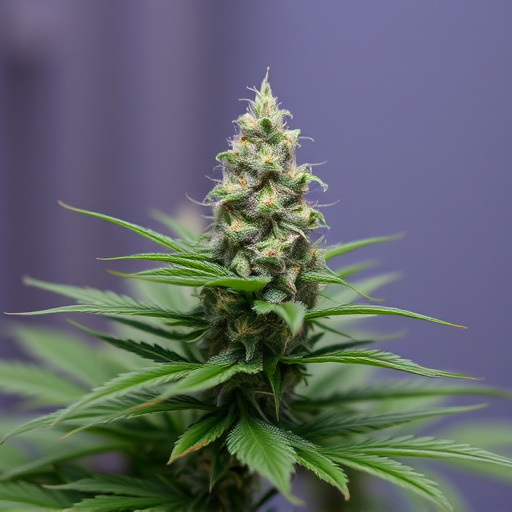
Cannabis offers promising natural relief for PTSD symptoms through high-CBD strains that interact wi…….

Cannabis flower offers a powerful tool in managing PTSD symptoms through its diverse strains and can…….
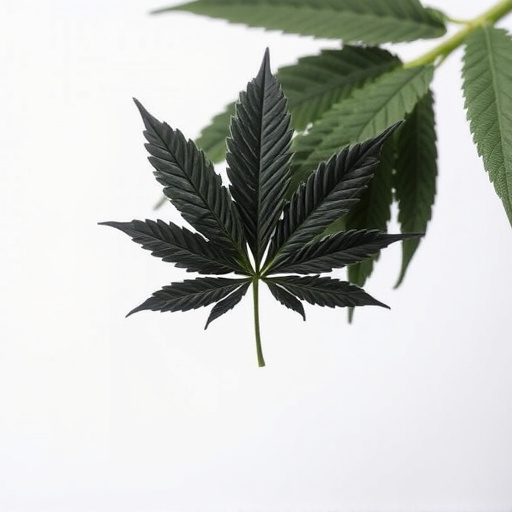
The duration of a cannabis high varies greatly (2-6 hours) among individuals, influenced by cannabis…….

Cannabis genetics are key to developing effective strains for Post-Traumatic Stress Disorder (PTSD)…….
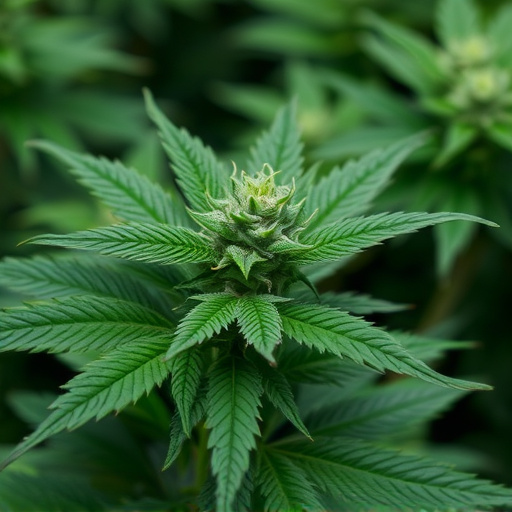
Post-traumatic stress disorder (PTSD) sufferers may find relief through specific high-CBD, low-THC c…….
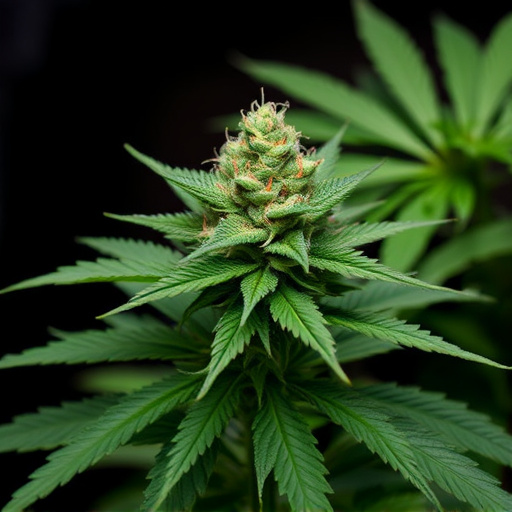
Post-traumatic stress disorder (PTSD) treatment is revolutionized by cannabis flower, especially hig…….
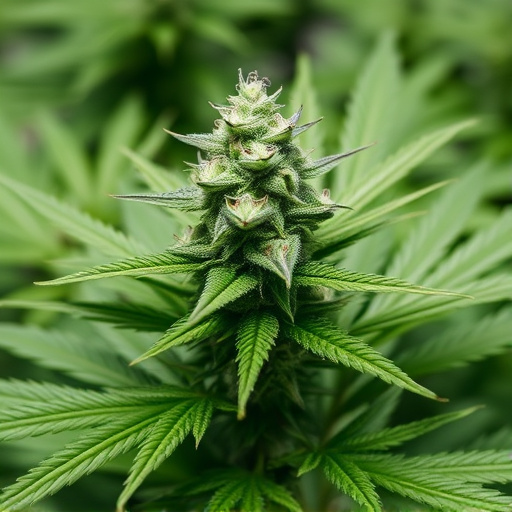
Cannabis, with its diverse strains and cannabinoid profiles (THC, CBD), offers a promising natural t…….
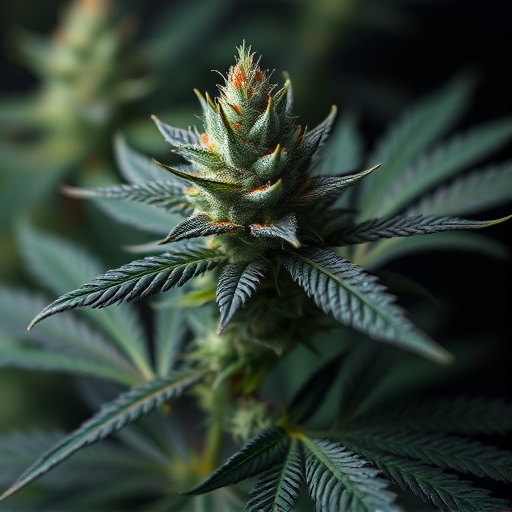
Post-traumatic stress disorder (PTSD) can significantly impact social and recreational life due to a…….
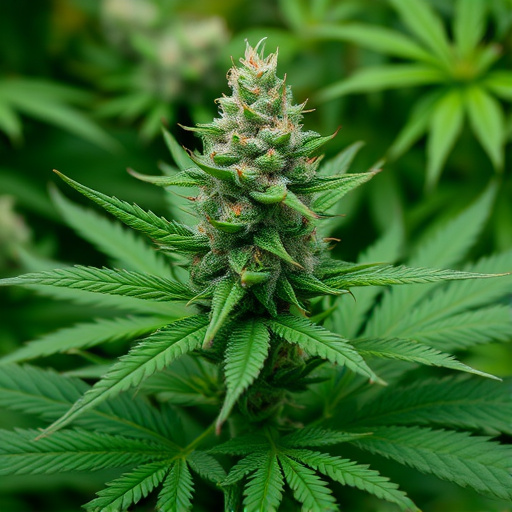
Cannabis acts as a powerful tool for artists, offering unique mental states that spark creativity. F…….